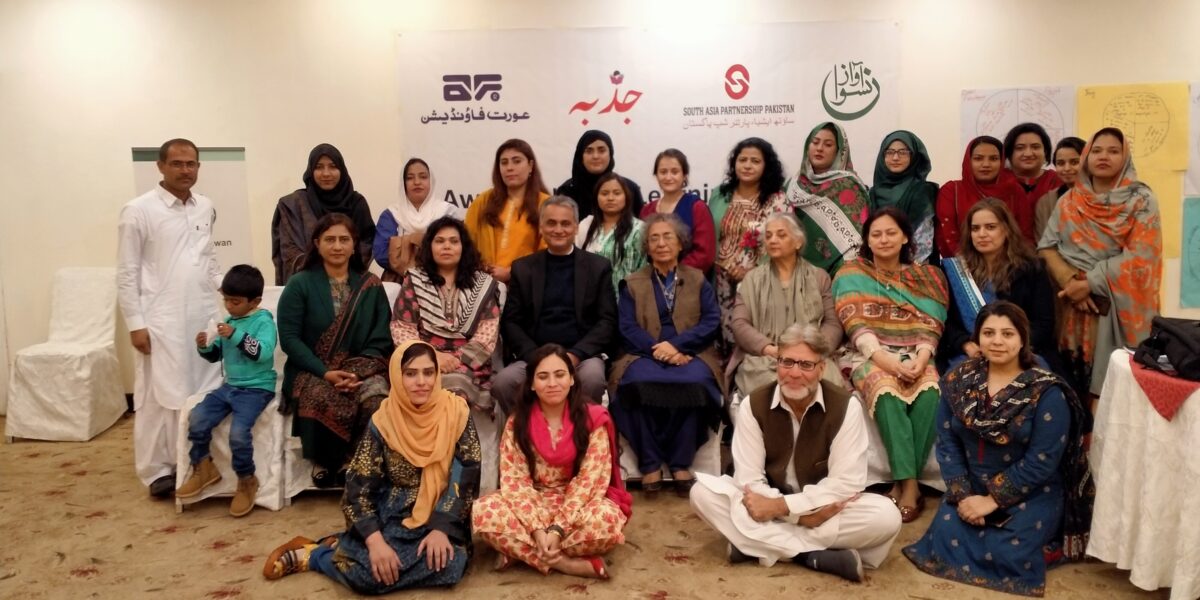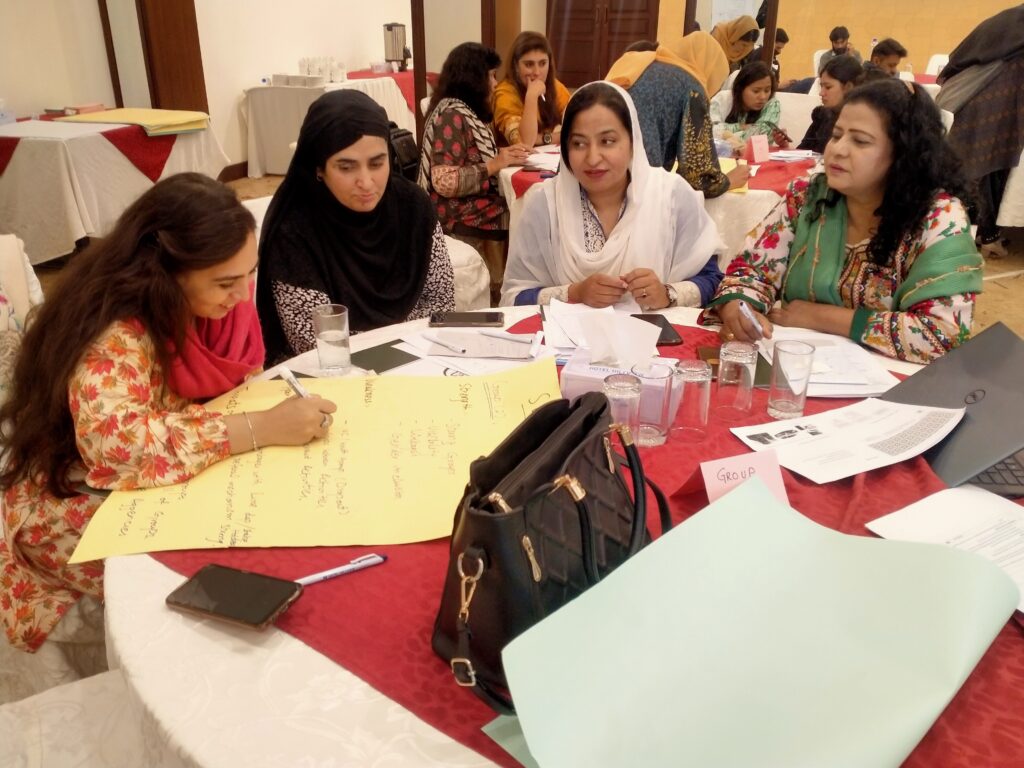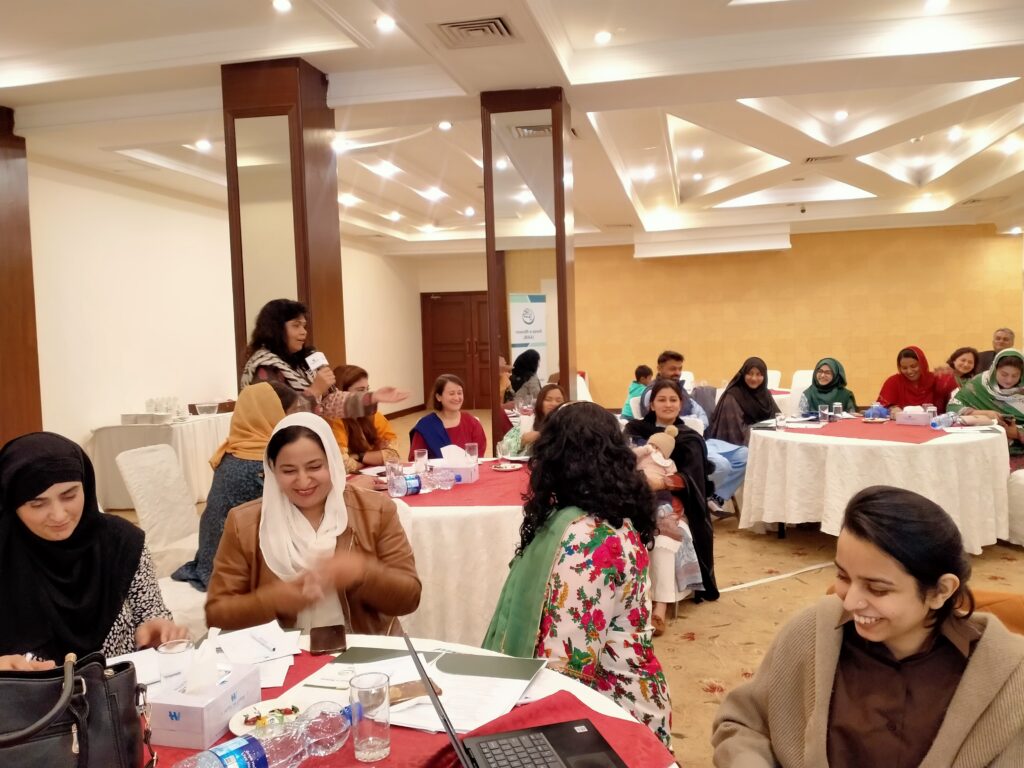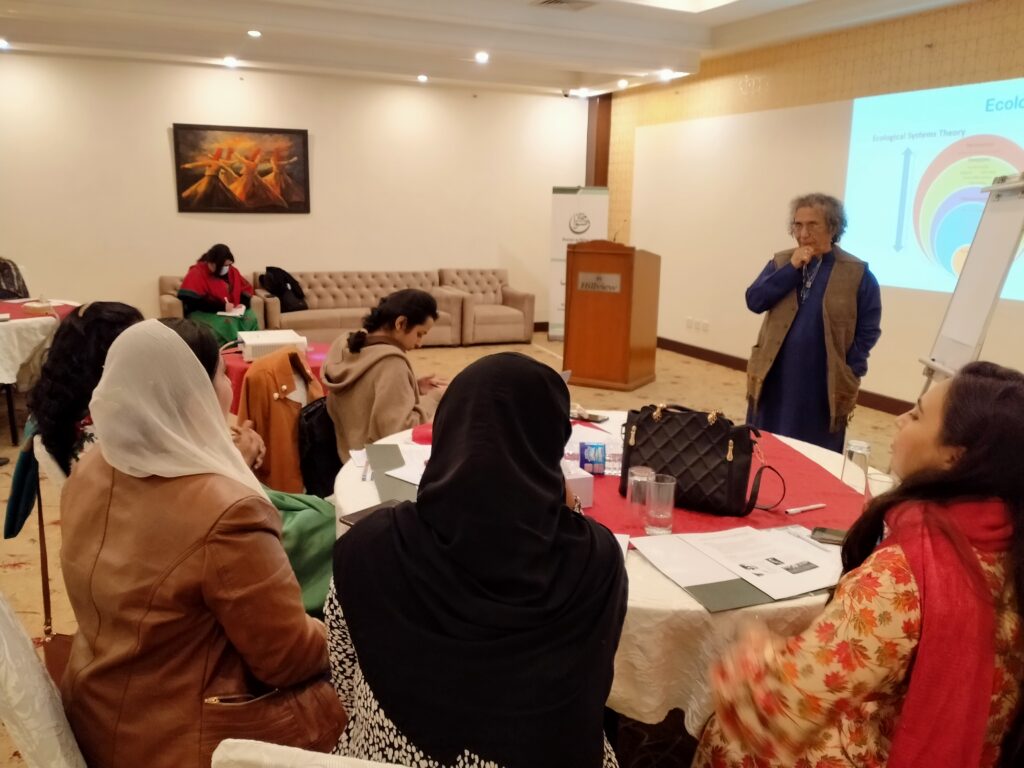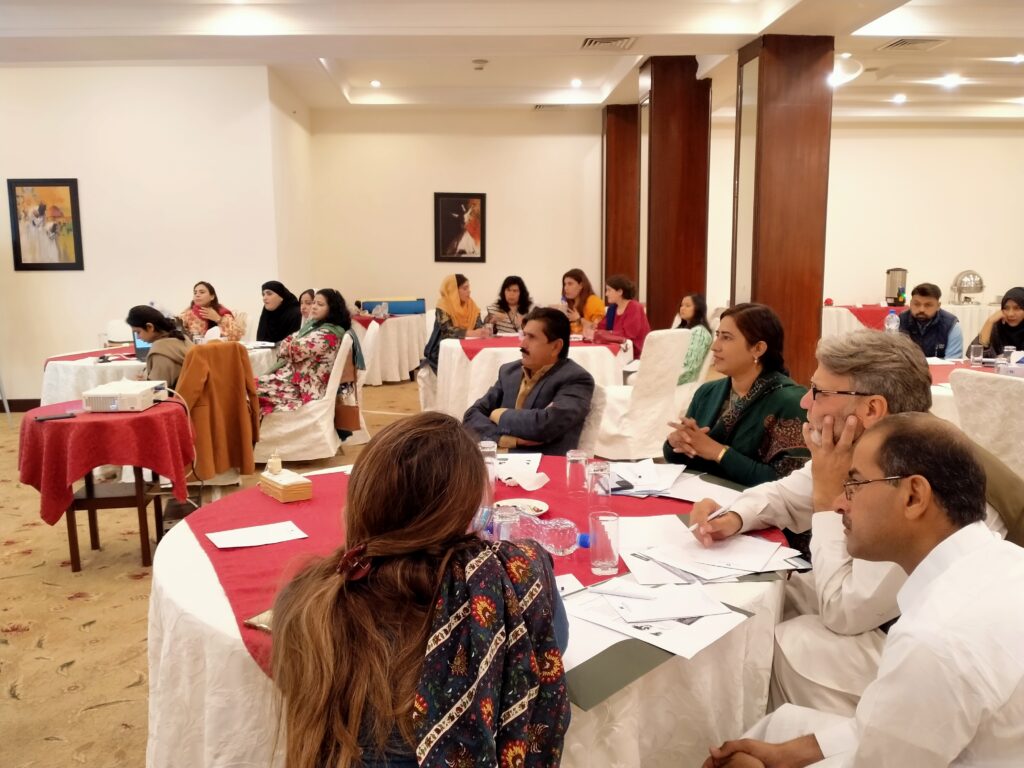Awaz-e-Niswan, under Project Jamhooriat and Ba-ikhtiar Aurat, held a two-day Learning Workshop in Islamabad for the local resource persons of women voters’ networks from 25 districts. Ms. Kausar S. Khan facilitated the two-day learning workshop, which aimed to achieve the following objectives:
- Share field experience to inform program approach for improved actions and outcomes.
- Discuss opportunities and approaches for the active engagement of young women as constituents, in the electoral process and beyond.
- Share experiences and perspectives on the role of diverse stakeholders in empowering women to exercise their voice and agency in the public and political sphere.
During the two-day workshop, project team members came together to reflect on the project’s successes, challenges, and lessons learned (WVN focused). The workshop provided an opportunity to assess the project’s outcomes, identify areas for improvement, and capture knowledge and best practices that can be applied to future projects. During the workshop, team members discussed what worked well during the project, what didn’t work as planned, and why. They also identified any barriers or challenges that were encountered and how they were addressed. The workshop included various activities/sessions, such as group discussions, brainstorming, and reflection exercises. It was ensured that all team members had the opportunity to participate and share their perspectives. The learning workshop approach was based on Paolo Freire’s theory of education, which required the learners to reflect and analyze their empirical realities/activities and then identify possible actions. The workshop was divided into different segments and sessions, each focusing on various learning aspects. The sessions were activity-based, where participants were split into multiple groups to work on different tasks.
The two-day workshop provided an excellent platform for participants to share their experiences, learn from each other, and gain new skills and knowledge. Through various sessions, participants learned about stakeholder analysis, SWOT analysis, and empowerment. They also discussed and identified key challenges in their respective areas and developed strategies to address them. The participants gained a better understanding of the importance of building partnerships and networks with different stakeholders, including marginalized communities, to achieve their goals. Additionally, they identified the need to improve their communication, presentation, and documentation skills, and also to invest in their personal and professional development. Overall, the workshop was a great success, and the participants left with renewed energy and commitment to making a positive change in their communities.


